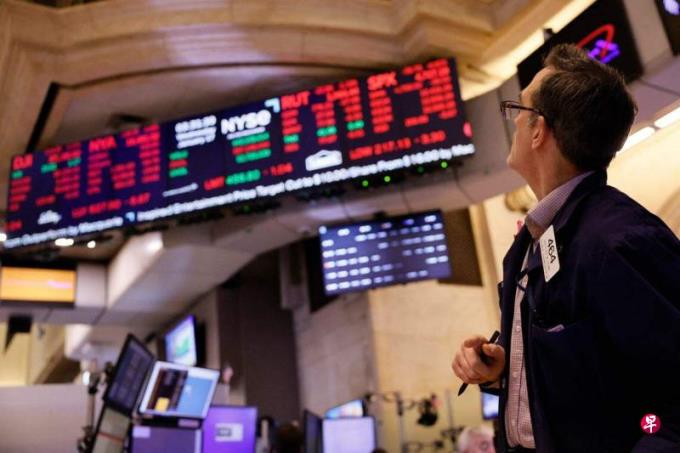
With the intensification of geopolitical tensions, and polls show that Trump is currently a popular candidate to win the presidential election, and it may become another turbulent year in 2024.
The global economy in 2023 was overwhelmed.Despite the sharp rise in interest rates, the United States has successfully avoided economic recession, and the main emerging markets have not fallen into a debt crisis.Even the old Japanese economy showed amazing vitality.In contrast, the European Union has disappeared because China's 40 -year -old high -speed growth era suddenly ended, and it slowly dragged down Germany's growth engine.
Looking forward to 2024, several problems are imminent.What will happen after the long -term interest rate of inflation is excluded?In view of the turmoil of the real estate industry and the high debt of local governments, can China avoid a larger economic slowdown?Can the Central Bank of Japan with a nearly zero interest rate of up to 20 years achieve normal interest rates without causing a systemic financial and debt crisis?Will the delay of the Federal Reserve's interest rate hike eventually pushed the United States into the recession?Can the stable situation of emerging markets be maintained for another year?Finally, what is the next main source of geopolitical instability?Is China blocked Taiwan and former President Trump won the November presidential election, or is it an unpredictable incident?
The answers to these questions are interrelated.The decline in the US economy may lead to a significant decline in global interest rates, but this may only be temporarily relieved.After all, many factors including ultra -high debt levels, continuous advancement of globalization, increasingly rising populism, increasing national defense expenses, and many factors including green transformation may make the long -term interest rates in the next 10 years higher than thatThe ultra -low level from 2012 to 2021.
At the same time, the great efforts of Chinese leaders to regain the 5%year -old economic growth rate are also facing severe challenges.First of all, it is difficult to see how Chinese technology companies maintain competitiveness with the government's continued spiritual entrepreneurial spirit.In addition, China's debt accounted for the ratio of GDP (GDP), from 40%in 2014 to 83%in 2023, which also limited the government's ability to provide indefinite rescue.
In view of the support of government support for solving high local government debt and the problem of excessive leverage in the real estate industry, the plan for newly introduced in China seems to be scattered to everywhere.This means that the national funds are allocated to the provinces, and then the bank is forced to issue loans to enterprises that are not offset at the market level lower than the market level. Finally, the new borrowing behavior of local governments will be suppressed.
However, it is quite difficult to maintain the full speed of China's economy while restricting the new loan.Although China has shifted from real estate to green energy and electric vehicles (which makes German and Japanese car manufacturers disturbing), as Yang Yuanchen (editor: International Monetary Fund Organization Economist) and I have recently pointed out, real estate and infrastructureMore than 30%of China's GDP still highlights the direct and indirect effects of these two industries.
Although Japan has maintained a strong economic growth in the past year, the International Monetary Fund is expected that its economy will slow in 2024.Whether Japan can achieve a stable landing depends to a large extent on how the central bank of the country has dealt with the inevitable but risk transition.
Considering that since the beginning of 2021, the yen is still nearly 40%lower than the US dollar, and the Bank of Japan can no longer postpone this change.Although Japanese policy makers may be more willing to stay in the army, hoping that the decline in the global interest rate can boost the yen and solve their problems, this is not a sustainable long -term strategy.What's more likely is that the Bank of Japan needs to raise interest rates, otherwise the long -sleeping inflation will begin to rise, bringing tremendous pressure on the financial system and the Japanese government, because the Japanese government's current debt to GDP will exceed 250%.
The U.S. economy did not fall into a decline like most analysts in 2023, but the possibility of recession was still about 30%(normal year was 15%).Even if the long -term impact of interest rate fluctuations cannot be predicted, the government of President Biden continues to implement expansion fiscal policies.Although the economy is in full employment state, the proportion of deficit accounts for GDP is still 6%. If the Bayidon student loan exemption plan is calculated, it is 7%.Even the split Congress is unlikely to significantly reduce expenses in the election.The high cumulative inflation rate in the past three years is actually equivalent to the government's 10%debt defaults -this one -time event cannot be repeated in the short term, otherwise it will cause serious consequences.
In many abnormal economic and political impacts, emerging markets have successfully avoided a crisis in 2023.This is largely due to the policy makers adopt a relatively orthodox macroeconomic strategy, but there are also some countries profitable with the help of upgraded geopolitical tensions.For example, India used the Ukraine War to obtain a large amount of low -cost Russian oil, while Turkey became an important transportation channel for European products restricted to Russia.
With the intensification of geopolitical tensions, and polls show that Trump is currently a popular candidate to win the US presidential election, and it may become another turbulent year in 2024.This is especially true for emerging markets, but if it is difficult for everyone to make everyone in 2024, don't be surprised.
Author Kenneth Rogoff is a former chief economist of the International Monetary Fund, a professor of economic and public policy at Harvard University
English Original: The Global Economy is not out of the woods
All rights reserved: Project syndicate, 2023.


